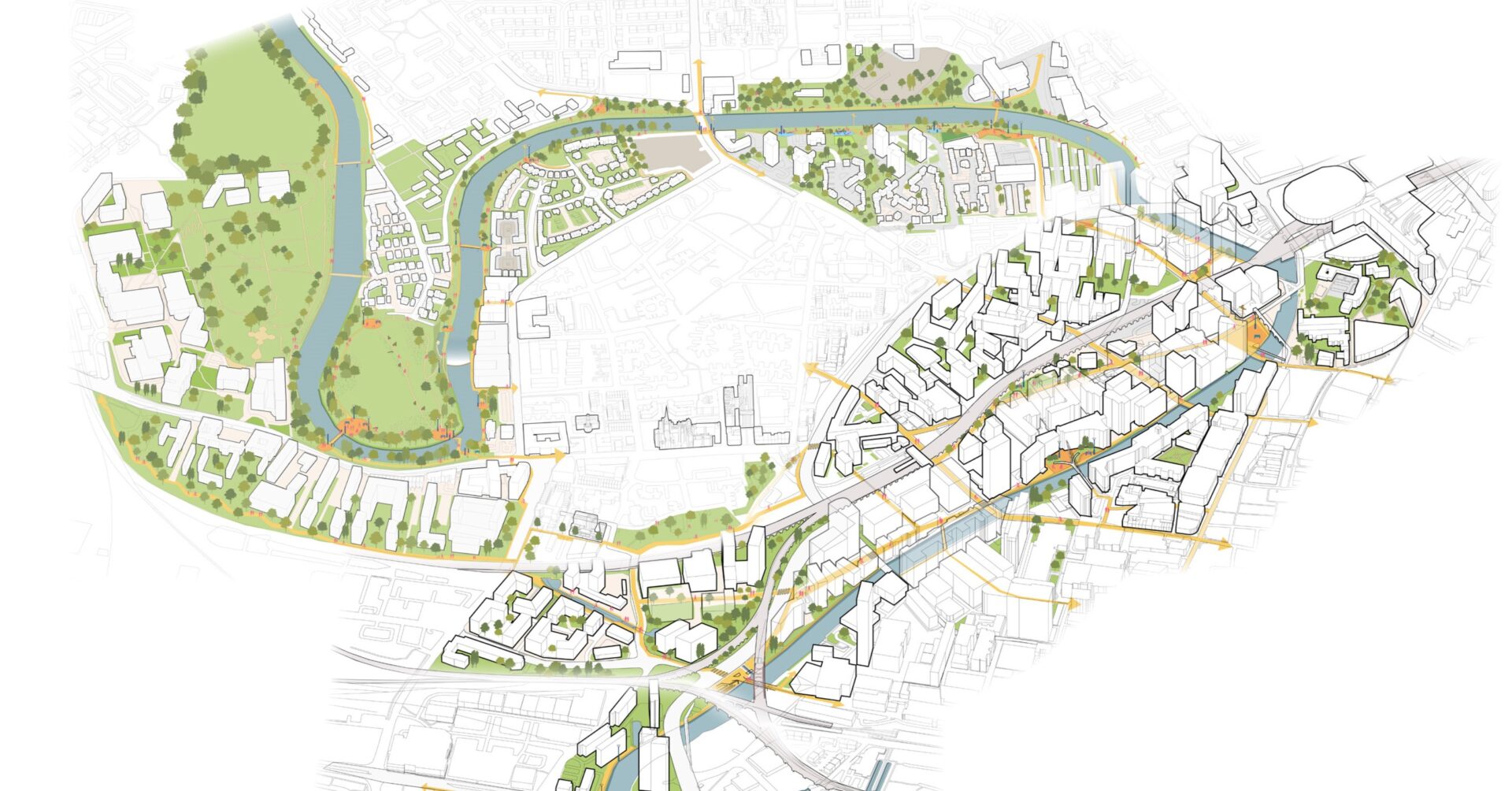Manchester goes under the mobility microscope
The city has the potential to be one of the world’s top smart city destinations of the future, according to a study analysing urban mobility by Deloitte.
The consultancy’s City Mobility Index offers an in-depth study of 18 major cities across the globe, including Paris, Berlin, and New York, examining each city’s transportation landscape and future of mobility readiness. The report analyses key aspects of mobility, such as public transit, air quality, and each city’s vision and strategy, ranking destinations from ‘emerging’ to ‘global leader’.
Along with London, Manchester was the only UK city to feature, and scored highly in areas including road safety, air quality and ease of public transport use.
Deloitte said that the city also demonstrated a strong vision and strategy for the future, showing promise in overcoming challenges associated with the use of private vehicles within the city by supporting shared mobility, electric vehicle schemes and testing autonomous vehicles.
On a spectrum running from ‘significant work to do’ to ‘global leader’ Manchester was around halfway, between ‘passive environment, a number of barriers’ and ‘proactive environment, some barriers’.
Simon Bedford, partner at Deloitte Real Estate, said: “We are delighted to launch the first iteration of the global cities index and equally pleased to see Manchester feature so prominently. The city is demonstrating an ability to adapt to the future, and it is testament to how far this city has come that it is now mentioned alongside key global cities.”
Areas Manchester scored less well on included resilience and reliability under the ‘performance’ sub-heading, and versatility under ‘service and inclusion’. Lack of integrated ticketing was picked out as a challenge, along with low interest in car-sharing and bike-sharing initiatives and a low level of venture capital interest and start-up activity in smart transport.
Manchester’s proportion of journeys made by private car compares poorly to European cities, but well to American and Australian counterparts. Paris is cited as a city leading the way in reducing car use – it introduced bike-sharing in 2007, an electric car-sharing plan in 2011 and closed off the left bank of the Seine to cars in 2013, all contributing to a 30% drop in traffic over 15 years.
The report said: “Leaders need to identify what the ‘right’ kind of spending is—typically, those that integrate systems or introduce technological improvements. These will produce better returns over time. While adding more service or building more roads can be helpful, developing better-integrated strategies with greater involvement from the private sector often yields better results.
“In these scenarios, the government often takes on different roles, such as enabling data sharing, monitoring cybersecurity, incentivizing private-sector innovation and participation, and establishing the standards and rules by which mobility providers must abide.”
Bedford concluded: “This work, alongside other research Deloitte delivers through the global business, has given us a great market platform that has seen the Manchester real estate practice earn over half its revenue outside the city in 2017.
“It is gratifying and exciting to see our people delivering real estate advisory services not only across the UK but also into continental Europe and even further afield.”
The report can be read in full here.





Integrated ticketing is an absolute must at this day and age. ‘Get me there’ (Stupid name by the way…) is confusing and unreliable. It needs to work more like the Oyster card in London.
By Alex
Agree with Alex. Confused as to why GMCA and TfGM can’t work with TfL to create an “Oyster for The North” Granted, it will take time, but without it Manchester doesn’t have a chance in competing on the global stage.
By Young Planner
Transport for the North is working to create smart ticketing for the North. Granted we’re behind but it’s also a much more complex landscape here. In London, transport is regulated by TfL and you’re only dealing with one city. In the North, we have a deregulated market with hundreds of operators, all with different views, across multiple cities and rural areas.
By Honorary Mancunian
Scored highly in air quality? Surely not. I am a COPD sufferer living twist railway and A6.
By Christopher J Green